“Health is a human right. Everybody should be
entitled to live a
healthy life.”

Lynda
Stuart
The Gates Foundation
My journey… It’s not a short story. I was born in Jamaica, though my family is originally from Barbados. My father was working in the UK, and I moved there when I was 10. He was a clinician and a public health physician, and I eventually trained to be a clinician too. At some point, I realized that public health and global health were in my blood.
At that time, seven years ago, I was recruited by the Gates Foundation and moved to Seattle. I thought it was a place where it was possible to have true global impact and help the world. And since I was a global citizen, the foundation seemed like a good place to spend some time and effort.
Being a global citizen comes with a fascinating insight into the world. One person’s success is everybody’s success; one person’s failure can take us all down. It gives you a pair of eyes on problems that other people don’t necessarily see.
Rising to the Challenge
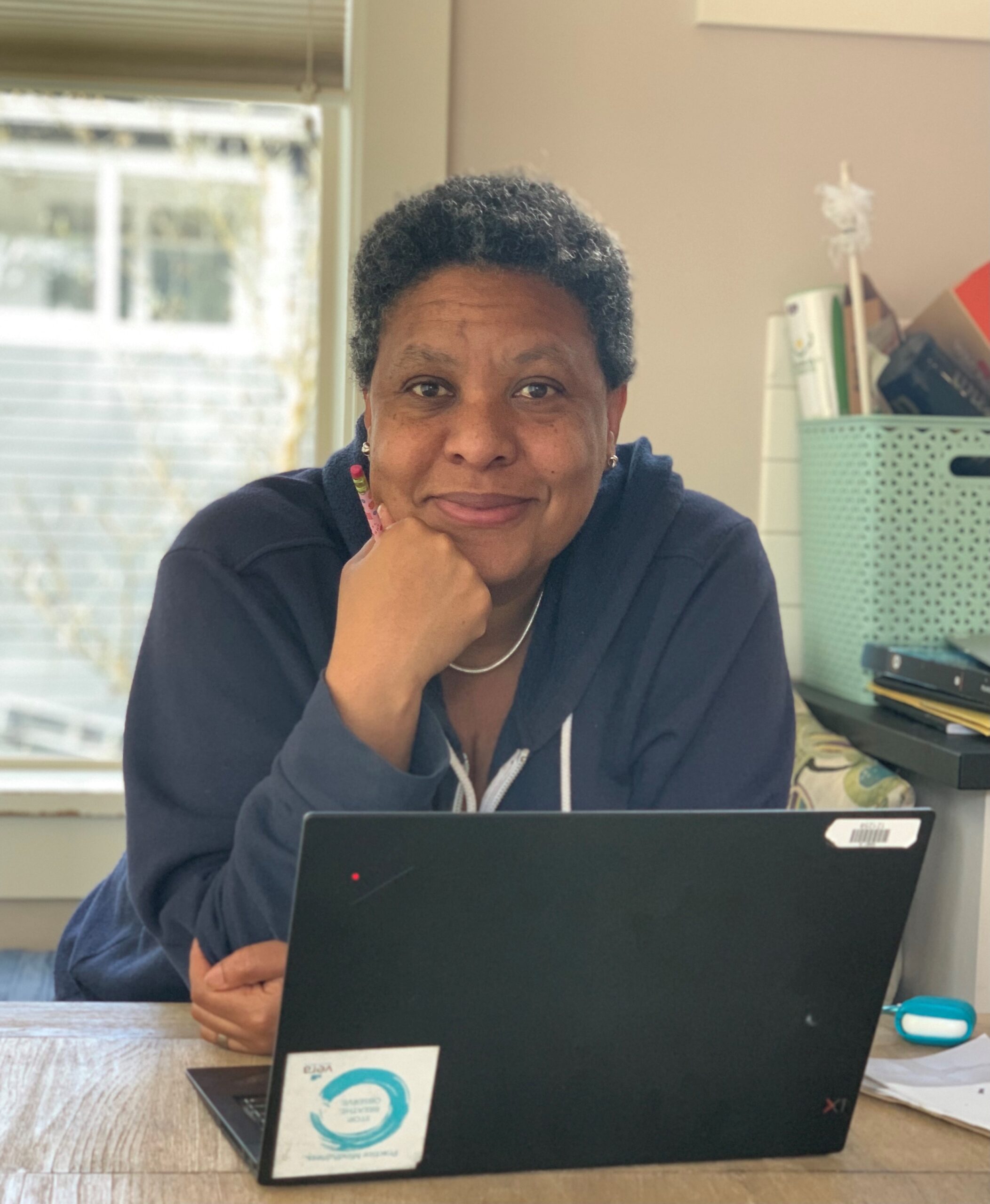
Lynda in front of her laptop, continues to work from home through the pandemic.
At the foundation, we talk more about what we’re enabling other people to do through grant funding and partnership support, not what we do.
We’ve also supported a lot of work on something that people don’t see called the ‘enabling sciences’ – or the things you need to have behind the scenes to make a vaccine. And we’ve done that for years. For example, I work on platform technologies like mRNA. So, because we invested in developing the platform, the groundwork for technologies that could be used in any disease area was laid well before the pandemic broke.
I officially started working on the SARS-CoV-2 virus at the end of January 2020, when we heard about the human-to-human transmission of the virus.
Our foundation is now working with a range of partners – governments, vaccine manufacturers like the Serum Institute in India, the Coalition for Epidemic Preparedness Innovations (or CEPI) on ‘Wave 2’ vaccine candidate development, organizations like Gavi, the Vaccine Alliance, and others to deliver COVID-19 vaccines to low-income countries through an initiative called COVAX.
Vaccines can be a bit of a thankless task. You’re creating an intervention – a thing you give to people to stop them from getting something. So, they may never know when the vaccines have worked or how we’re protected by vaccines.

There’s this classic quote by a great vaccinologist, “Nobody ever thanks you for the disease that they never got.” We don’t necessarily think a lot about how we’re protected by vaccines. I describe them like this: if we’re superheroes, then vaccines are our capes. We don’t even know we have them.
Nonetheless, I chose this path after realizing that if I was somehow able, through my work, to bring one vaccine to market one year earlier that could save millions of lives, then the impact I would have by being successful is amazing.
A year ago, when I told people I worked with vaccines, people would say, “Oh that’s nice,” or “That’s a kind of weird thing to do.” I think it’s only in this bizarre situation that people appreciate it. I hope the output will be an appreciation of the value and power of vaccines in keeping society safe.
If what we’re supporting helps vaccines come to market now versus a year from now, if companies make a vaccine that can get to 500 million people in the next year… that’s millions of lives that will have been saved – and that keeps you getting up in the morning.
The Foundation’s Support of COVID-19 Vaccines
Stage 1
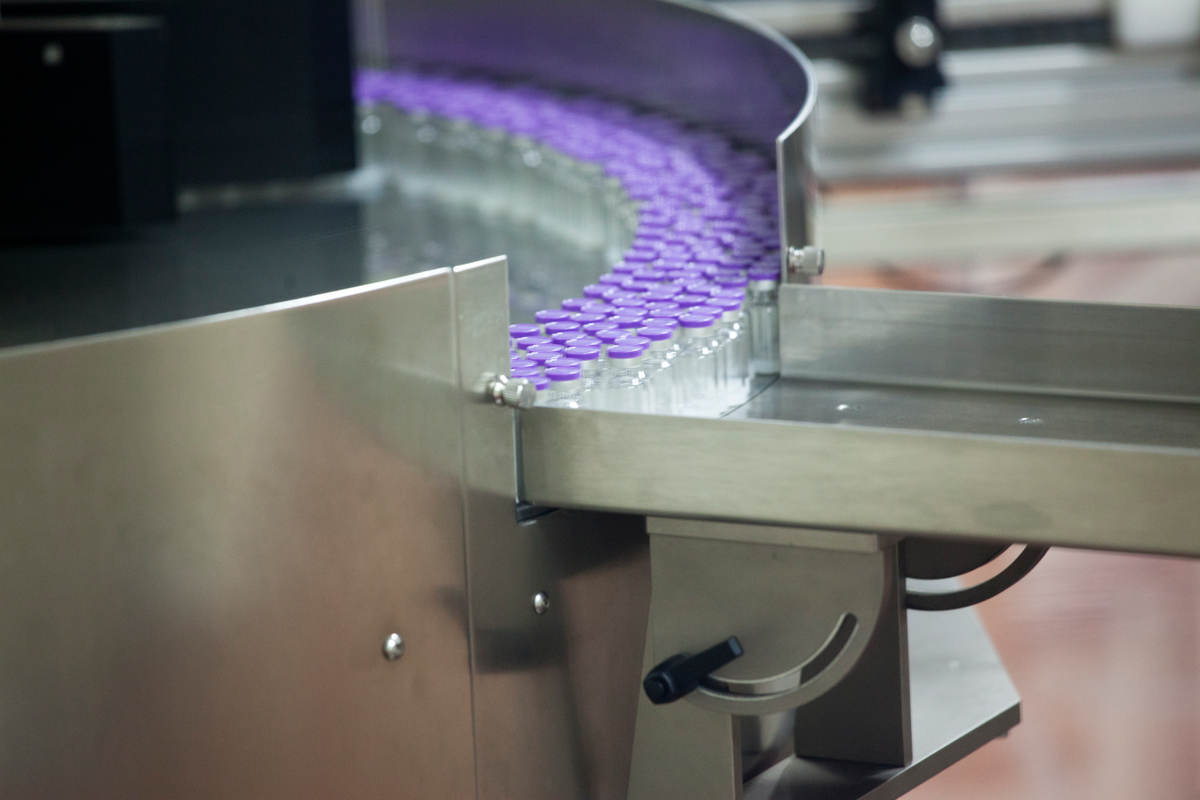
Development & testing
Involves determining whether vaccine candidates are safe and whether they work in various populations of people. For COVID-19 vaccines, the first candidates went from sequence to emergency use in 10 months.
Stage 2
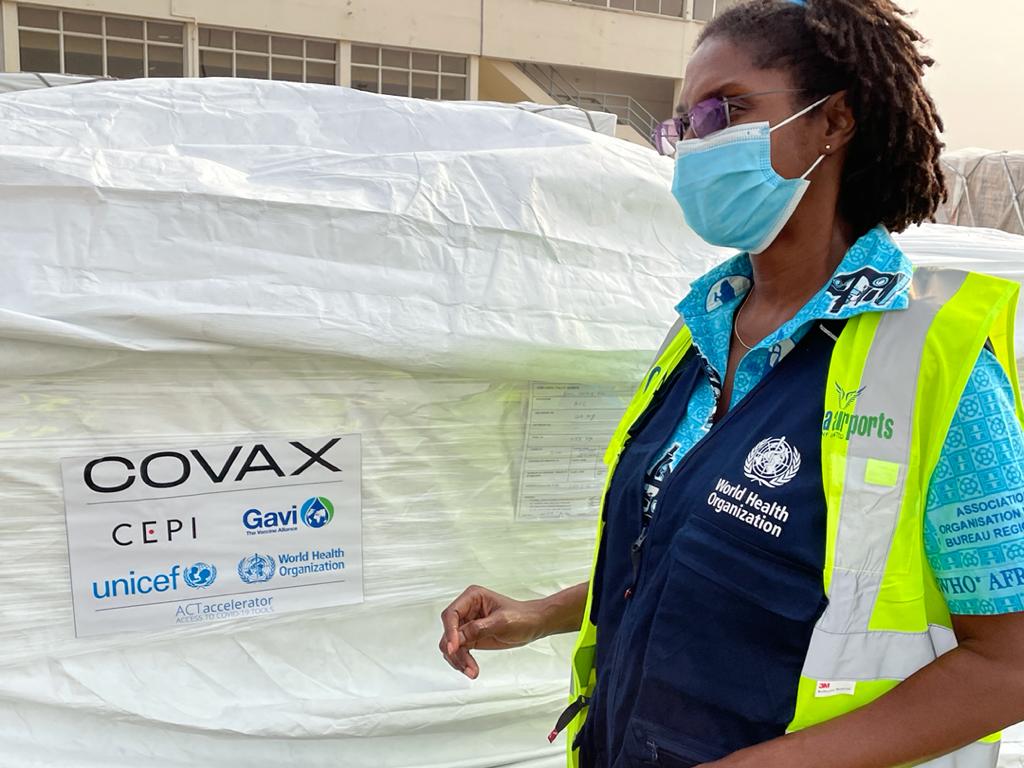
Rolling out
Delivery of COVAX vaccines started in February 2021, while high-income countries started roll-out in December 2020.
Stage 3
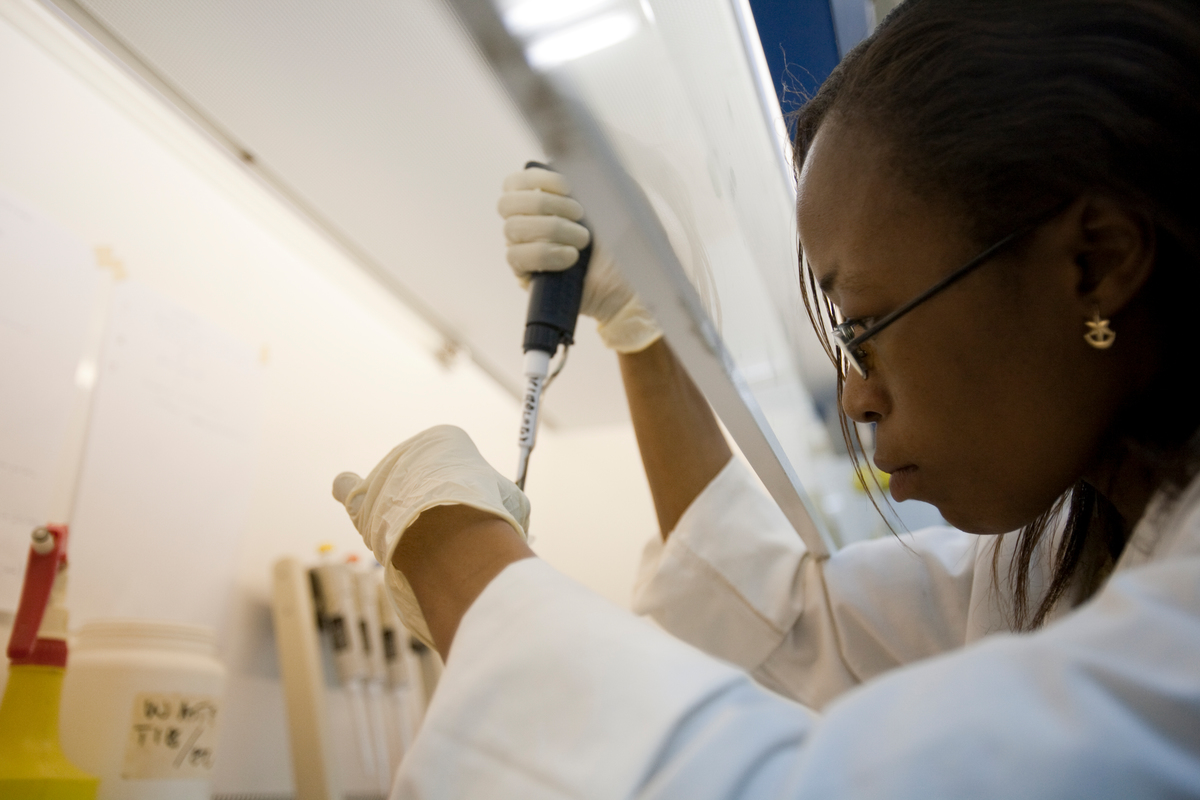
Innovate and stay ahead
Continuing to develop new vaccines to address variants and future disease threats.
One of the things we say is that vaccinations themselves don’t save lives, it’s the immunization that does. It’s when the vaccine goes into your arm that lives are saved.
We as a community have a lot to do to make sure vaccines are accepted. There need to be stories of reassurance to decrease vaccine hesitancy and increase uptake.
Revealing Inequities
COVID-19 is revealing inequities at so many levels, and a part of my own identity is tied to all of that.
From a personal perspective, as a person of color, the differential impact of COVID-19 on marginalized and disenfranchised parts of not just the American population but also the world has completely come to the fore. COVID-19 is revealing inequities at so many levels.
As you look around the world, the thing that seems to be true to me is that, of the countries that have done well across these crises, they have been able to find and coalesce around a common purpose, a common sense of society, and a common mission.
There are a couple of possible outcomes that are very worrying to me and keep me up at night. One concern is that there’s going to be an access issue: if the vaccines are expensive, how are people who need them most going to get them? When they become available we need to encourage wealthy countries to do whatever they can to make sure vaccines reach people in lower-income countries too, such as support COVAX, a global initiative between GAVI, CEPI, and WHO.
Secondly, even if they are available, there might be a lot of vaccine hesitancy because of the politicization of this whole effort. And it will be important to try to reassure people – particularly people of color who need them and yet have the greatest reason to not trust the government – that these vaccines are something that they should take.
If it’s reassuring for people of color that there are Black people like me who are helping to make these vaccines, then elevate those stories.
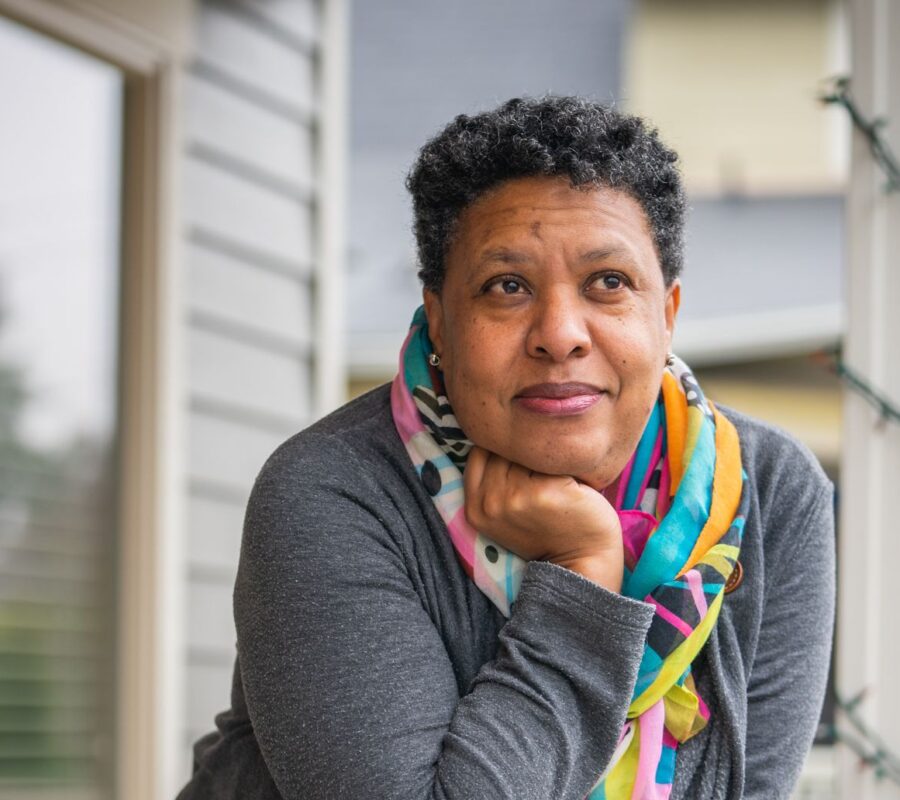
“We’re all in this journey together. And it’s going to take all of us to get out of it.”
Lynda © Gates Foundation/Chloe Collyer
Finding Hope
On the positive side, I’ve always traveled a lot. So, to be able to spend time with my kids has been a total upside to this whole pandemic. It’s been really great to be with them constantly. With how much I love that, I’m not sure that I can go back to the job of constant travel.
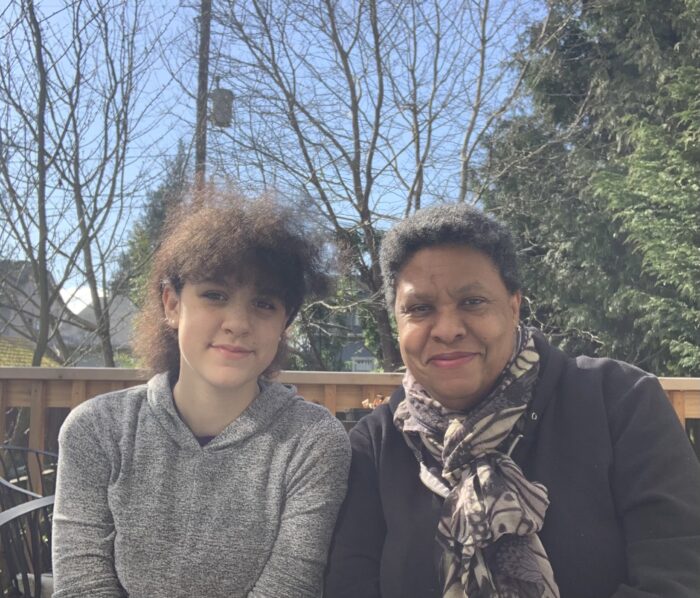
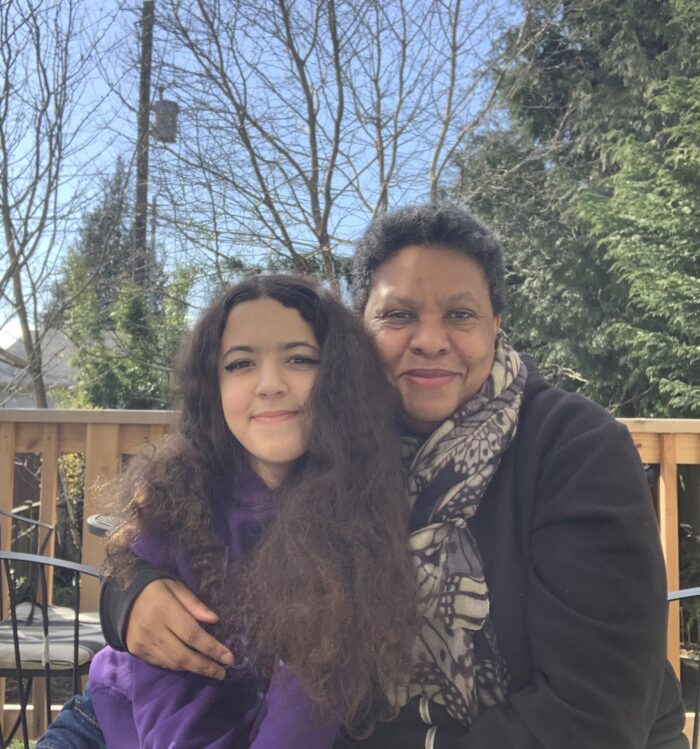
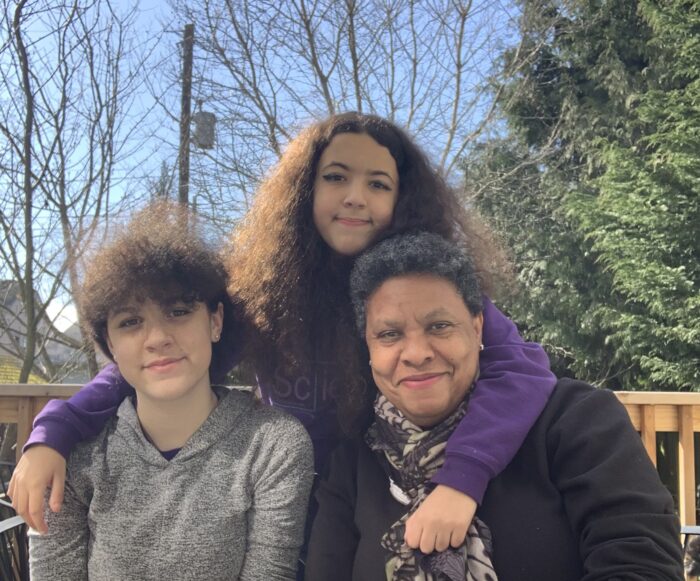
Lynda with her daughters Jasmine and Giselle Lacy-Hulbert sitting and hugging © Lynda Stuart
To be in the place I’m in, with the skills and knowledge I have, and to be able to meaningfully – and constructively, I hope – contribute to the solutions in front of us that are required is a privilege and humbling. It’s something you can’t imagine will unfold many times in your life.
Coming out on the other side of this, I
would love to see an empowerment of low- and
middle-income countries to be able to have
their own health security in their own
hands. I think health is a human right.
Everybody should be entitled to live a
healthy life.
It takes a huge village to get any of these
things going. The miracle of it happening
now is how many people have to come together
to make this real.
– Told to Marcus Harrison Green of South Seattle Emerald in interviews from October to December 2020
Get Involved
This global crisis requires a shared global response: Collaboration is paramount to overcoming unprecedented challenges and consigning COVID-19 to the history books. Learn how COVID-19 is developing across the world, track COVID-19 cases globally, and stay up-to-date on COVAX’s global vaccine rollout.
Learn more with the links on the right: